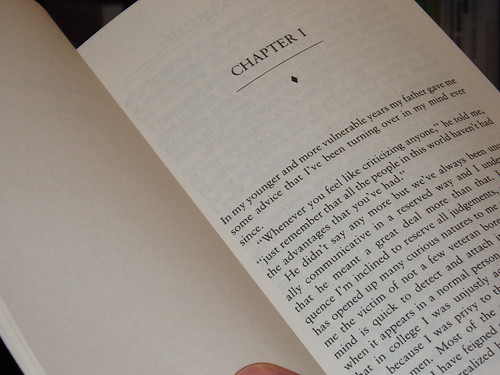I wrote a while ago about the stories my seniors are writing in our storytelling class. Each randomly drew one of Aristotle’s identified human emotions from a hat and was asked to let that emotion inspire a short story.
A few days later, the students partnered with one another with the goal of getting to know each other’s protagonists.
“What’s the name of one of your characters?” was the starting question. From there, the sky was the limit. They inquired about the characters’ favorite colors, their histories with their parents, what kind of students they were in middle school, their appearances – anything.
As partners questioned, they took notes on the answers. Those notes were handed over to the writers when the interviews were over as reminders of whom they were writing about. The activity proved informative.
“I’ve never really thought about who a character was before a story I was writing.”
“This makes me feel like I know the character, like she’s real.”
That’s the idea.
Then they wrote.
And wrote.
And wrote.
Last week, we read Atlantic Senior Editor Alexis Madrigal’s story outing Chicagoan Dan Singer as the man behind the twitory of @MayorEmanuel.
We discussed the idea that an entirely new genre of literature (or several) was being created in our lifetimes. Story was being transformed.
As it’s a storytelling class guided in part by the essential question, “How does the way we tell stories affect those stories,” it seemed a good idea to try our hands at these new genres.
Enter the project.
Description: Taking the story you wrote based off of one of Aristotle’s identified emotions, plot the timeline of your story, select the tool or tools you’ll want to use and tell your story in real time. Think of it as a mix of 24 and @MayorEmanuel.
I informally launched it Friday as an idea I’d been playing around with. Nothing formal. Just words in a conversation.
Monday, I handed out project descriptions and we started building. Today, we collaborated on the rubric.
Any online tool is fair game – Facebook, tumblr, twitter, youtube, anything.
In traditional arts and letters, we have fiction and nonfiction with the line blurring from time to time.
If everything can be read as a text and if the more traditional texts are moving online, is anything inherently nonfiction?
Some of what they’re writing violates user agreements. I don’t feel badly about that. If Mark Zuckerberg can play in my backyard, I can play in his.
One student has solicited his friends to also build character profiles to improvisationally interact with his protagonist and the events of the narrative. Other students have created public profiles on Facebook for their characters’ public thoughts and anonymous tumblr accounts for those same characters’ private thoughts. Anyone with both links will have the whole story, but either link will provide a different narrative.
Differing from Singer, we built blueprints and timelines for these stories. As I checked them in today, the students explained how they’d begun posting as exposition already.
Thursday I received a friend request on ‘Book from someone named Kwadwo Watcher. A few minutes later, I received the message below.

Another character started following me on twitter. A few students’ characters are following and friending one another with plans for intertextual cross-pollination.
All signs are pointing to the probability that this will be an interesting project.

